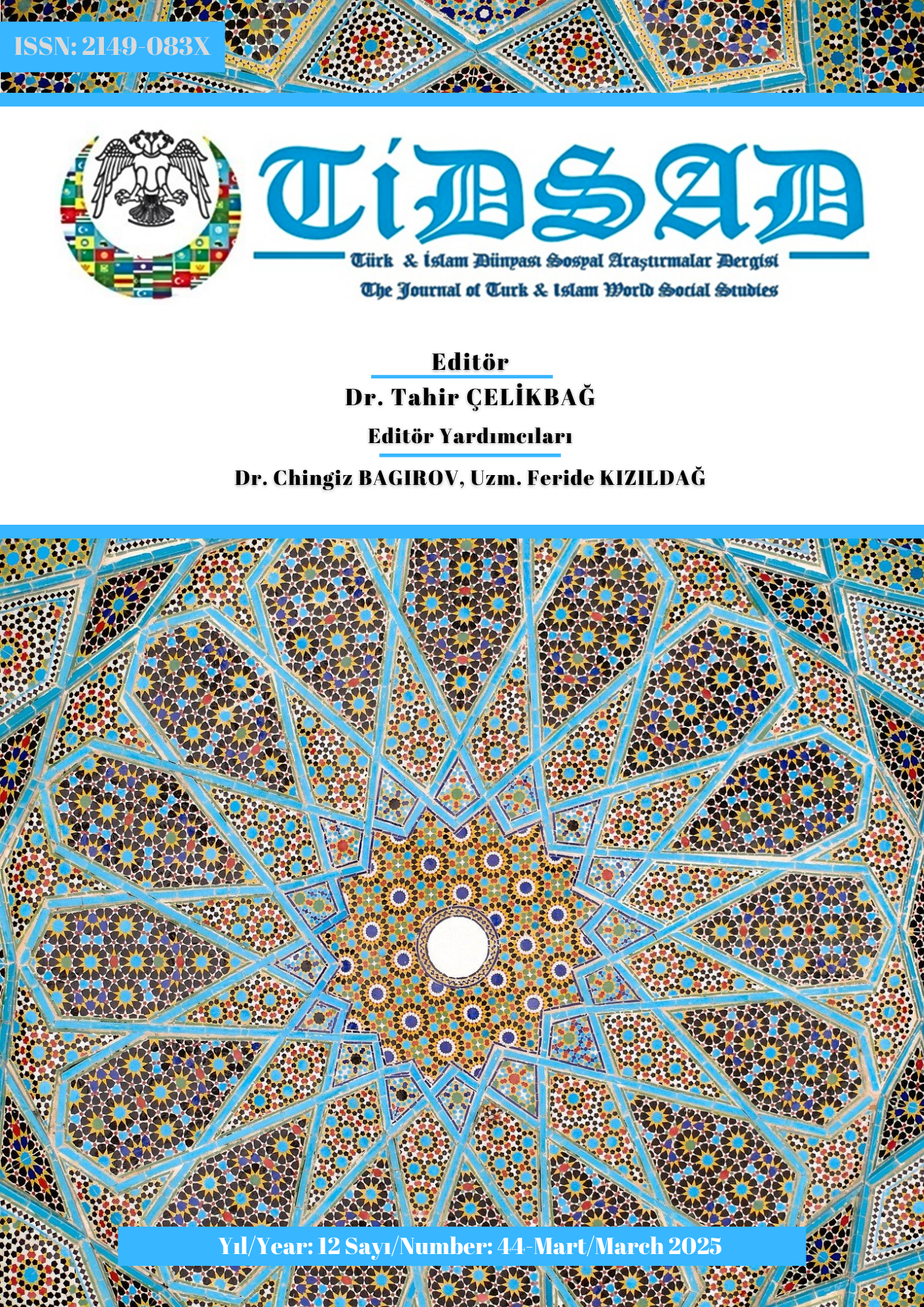Tarihte Müşriklerin Peygamberleri Delilikle Suçlamalarına Dair Analitik Bir Bakış (Hûd Sûresi 54. Ayet Örneği)
Author :
Abstract
Peygamberler, gönderildikleri toplum veya kavimleri tarafından tanınan kimselerdir. Hatta birçoğu, peygamberlik öncesi toplumlarınca danışılan şahsiyetlerdir. Onlar, kendilerine verilen insanları aydınlatma görevini üstlendikten sonra birçok iftira ve hakarete uğramışlardır. Neredeyse her dönemde gönderildikleri toplumun yöneticileri tarafından beyinsizlik ve yalancılıkla itham edilmişlerdir. İnsanlar, örf adetlerine müdahale eden peygamberleri, tanrıları tarafından çarpıldıkları ve aklını başından aldıkları gibi suçlamalara maruz bırakmışlardır. Kur’ân, söz konusu peygamberlerin bazılarını anmış bazılarını ise anmamıştır. Kur’ân’ın söz ettiği peygamberlerden başta Hz. Peygamber olmak üzere Hz. Nûh, Hz. Hûd, Hz. İbrahim, Hz. Lut ve Hz. Mûsâ’yı saymak mümkündür. Söz konusu itham ve iftiralar, bazen peygamberlerin en yakınından kaynaklanmıştır. Bu noktanın irdelenmesi, oldukça önem arz etmektedir. Buna Hz. Nûh’un eşi ve oğlu, Hz. İbrahim’in babası, Hz. Lut’un eşi ve Hz. Peygamber’in amcası örnek olarak verilebilir. Aslında peygamberlere güç gelen olay, dışarıdan daha çok, aile bireylerinden ve yakın akraba çevresinden gelen iftira ve suçlamalardır. Bu tür iftira ve ithamların, peygamberler ile sınırlı kaldığı söylenemez. Peygamberlerin misyonlarını üstlenen kişilere de her zaman aynı ithamlar yakıştırılmıştır. Kur’ân, belli bir zamanla sınırlı olmadığına göre onun ilke ve prensiplerini seslendiren kimselere de aynı iftiraların yapılması doğaldır. Bu çalışmada Hûd Sûresi 54. ayet bağlamında tarihte müşriklerin peygamberleri delilikle suçlamalarının arka planını irdeleme amaçlanmıştır. Suçlamaların, birçok amaca yönelik olduğu tespit edilmiştir. Ayet, bu açıdan olayı gündeme getirdiğinden dolayı ele alınmış, ona dair müfessirlerin yorumları değerlendirilmiştir.
Keywords
Abstract
Prophets are recognised by the society or people to whom they are sent. Many of them were even consulted by their societies before their prophethood. They were subjected to many slanders and insults after they took on the task of enlightening people. In almost every period, they were accused of stupidity and falsehood by the rulers of the society to which they were sent. People have been subjected to accusations that the prophets who interfered with their customs and traditions were distorted by their gods and that they had lost their minds. The Qur'ān has mentioned some of these prophets and not others. Among the prophets mentioned in the Qur'ān, it is possible to count Prophet Noah, Hûd, Abraham, Lot and Moses. These accusations and slanders sometimes originated from those closest to the prophets. It is very important to examine this point. The wife and son of Prophet Noah, the father of Prophet Abraham, the wife of Prophet Lot and the uncle of Prophet Mohammad can be given as examples. In fact, the events that were difficult for the prophets were slander and accusations from family members and close relatives rather than from outside. It cannot be said that such slander and accusations are limited to prophets. The same accusations have always been levelled against those who undertook the mission of the prophets. Since the Qur'ān is not limited to a certain period of time, it is natural that the same slanders are made against those who vocalise its principles and principles. This study aims to examine the background of the polytheists' accusations of the prophets of insanity in the context of verse 54 of Surah al-Hud. It was determined that the accusations were aimed at many purposes. The verse has been discussed from this point of view because it brings the issue to the agenda, and the interpretations of the commentators on it have been evaluated.





